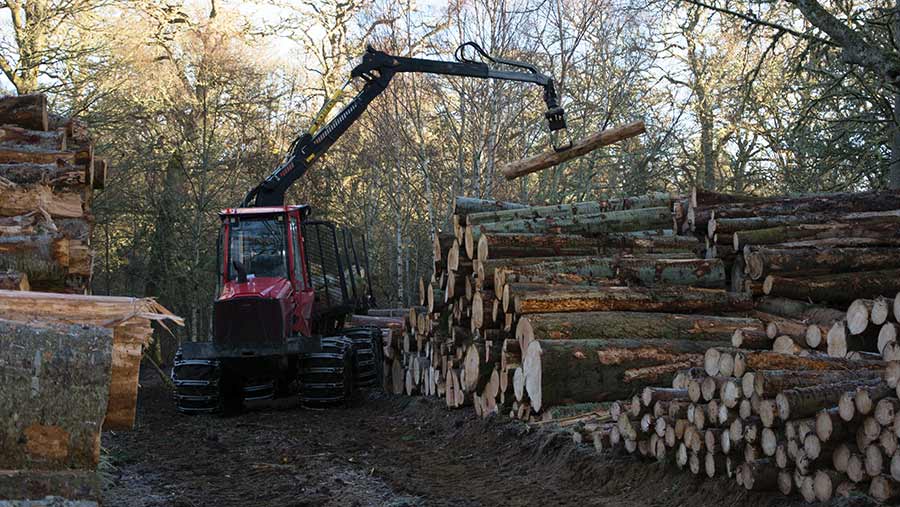New fund set to bring woodland into active management
 © iStockphoto.com/Siobhan Fraser
© iStockphoto.com/Siobhan Fraser Many woodlands that were previously looked after have been left to do their own thing, and with that opportunities to reverse biodiversity decline, mitigate climate change and deliver “public goods” have been lost or reduced.
Farms could also be missing out on valuable income through woodfuel and timber production by failing to manage viable woodland.
A new project, Protect Improve Expand Sustain (Pies), is aiming to change that by supporting landowners in England to bring existing woodland back into active management and to create new wooded areas.
See also: England Woodland Creation Offer – what farmers need to know
One of the partner organisations delivering the scheme is Sylva Foundation, whose chief executive is Dr Gabriel Hemery.
He describes Pies as the equivalent of taking a step on the first rung of the ladder for landowners with unmanaged woodland or considering planting new areas.
“We can help them go from position of zero management or creation to starting that journey,’’ he says.
The project is funded by the Trees Call to Action Fund, developed by Defra in partnership with the Forestry Commission and administered by the Heritage Fund.
Dr Hemery explains how it works and what it means for landowners.
What is on offer?
Farmers and landowners taking part in the project receive free advice, including a site visit and customised report, plus ongoing online support and technical services.
The advice is delivered by independent woodland experts over three days and is worth up to £3,000 to every successful applicant.
The landowner can choose which expert to engage from a list of three local to them.
That expert provider initially gathers information, maps and plans, and then agrees the time and scope of a site advisory visit with the client.
Following the initial advice and visit, digital plans and maps are shared with the landowner via a free account on the myForest platform run by Sylva Foundation.
This platform provides ongoing support to the landowner, while simplifying the process of applying for government incentives and meeting regulatory requirements.
Those who receive the free advisory visit are subsequently eligible to apply for further financial support – for example, through the England Woodland Creation Offer (EWCO).
Another valuable part of the Pies offer is the Grown in Britain Forest Certification, which is offered free for one year, supporting eligible landowners to make the most of their woodland resource.
Is the scheme specifically for managing woodland?
No, the advice can be for management or woodland creation, there is no bias towards either.
It may be that a landowner has existing woodland they want to restore while also planting new woodland adjacent to it, to enhance the biodiversity impact of both.
What interest has there been so far?
There are 91 advice visits under way and experts have assessed 3,157ha.
Since the scheme launched, 463ha of woodland has been brought back into active management and 114ha of new woodland has been proposed.
Is it open to tenants?
Tenants can apply, but there needs to be a very specific clause in the tenancy agreement that permits long-term forestry.
For that reason it is unlikely that this scheme will be relevant to tenants, but that doesn’t mean they can’t apply.
How competitive is the scheme?
Applicants must apply formally and there is a rigorous selection process – the criteria must be met.
Applications to access this support are now open thanks to further funding from the Forestry Commission.
Eligibility
Eligible landowners include those with existing woodland that do not have a current management plan in place, and/or any landowner interested in creating new woodland on their land.
The offer is available to landowners in England only.
